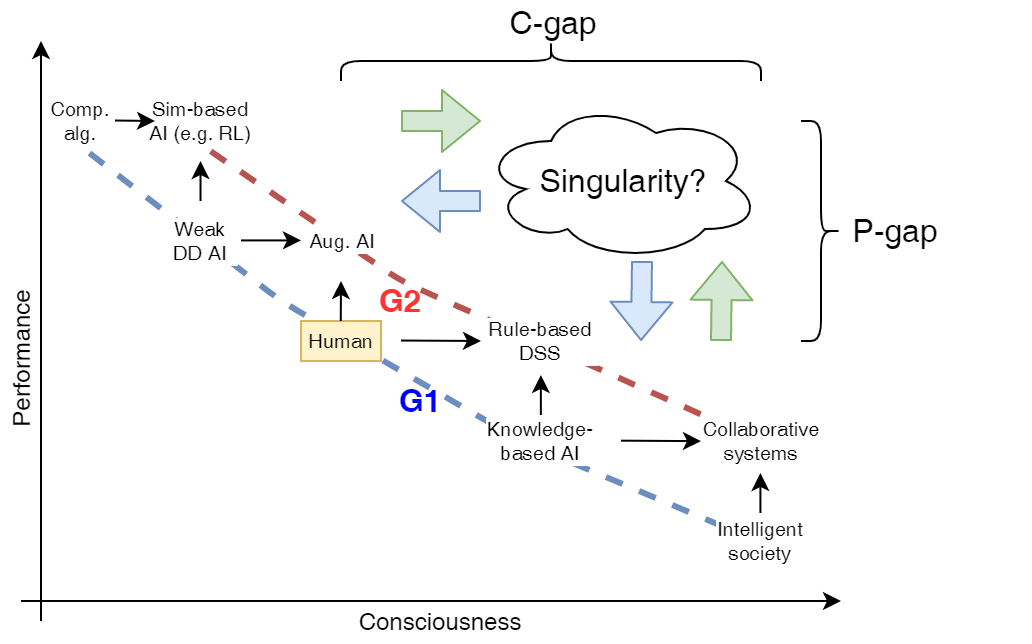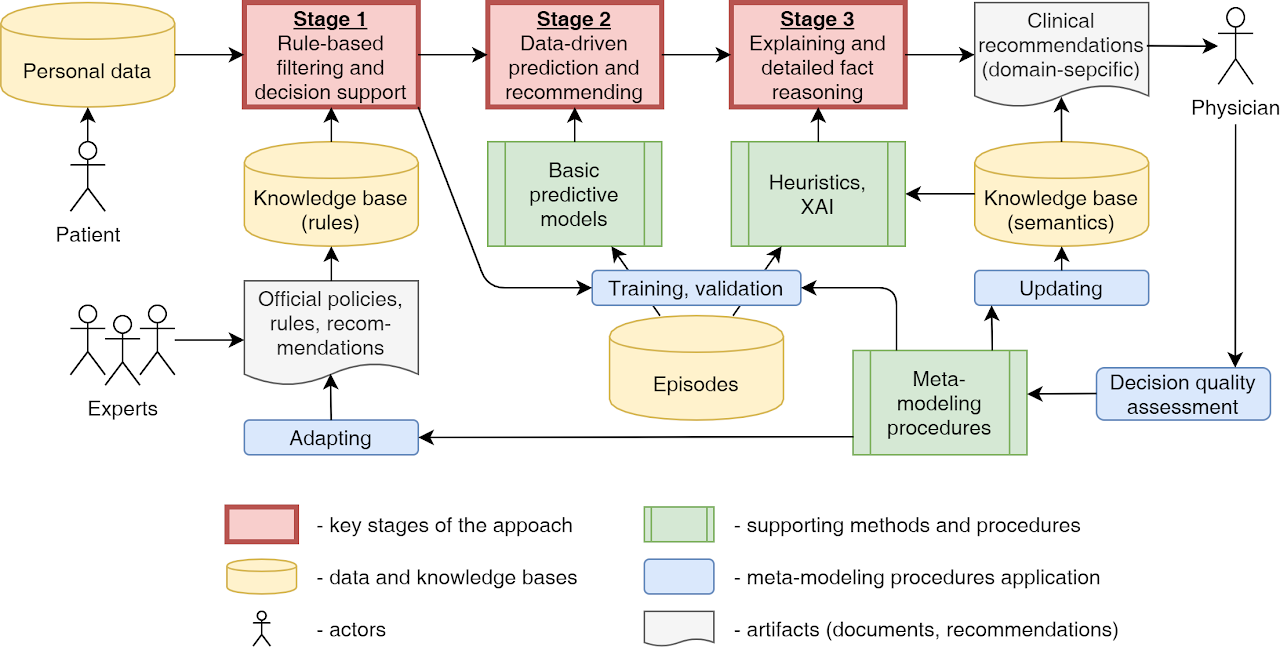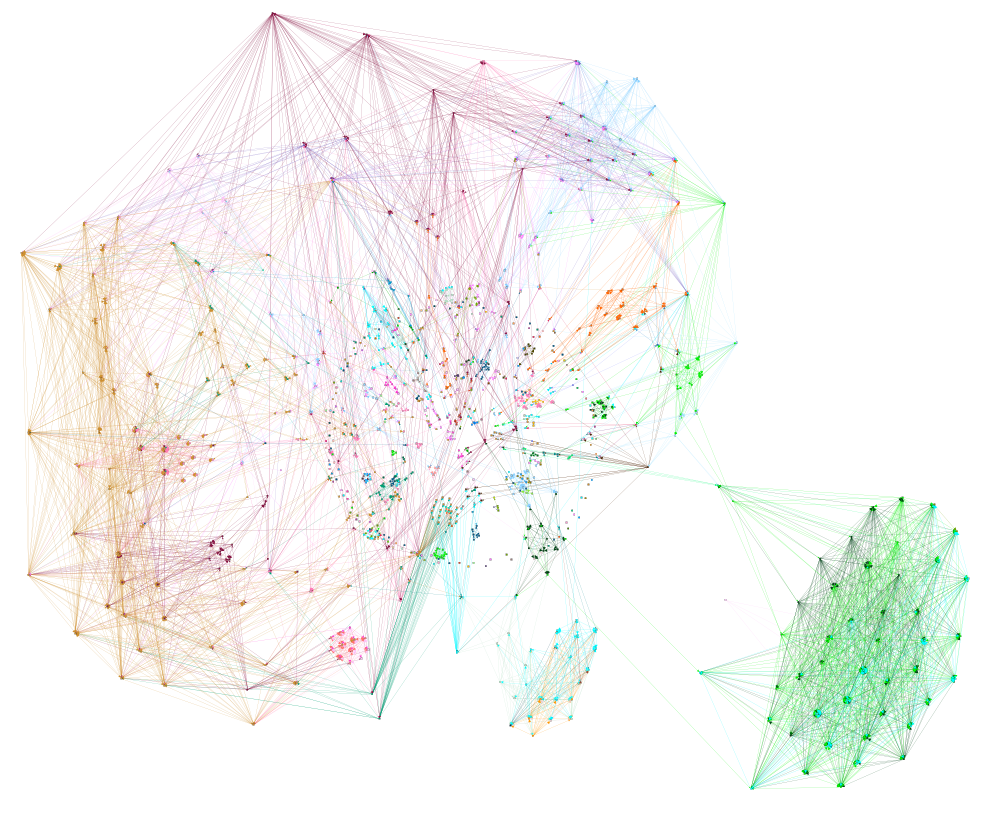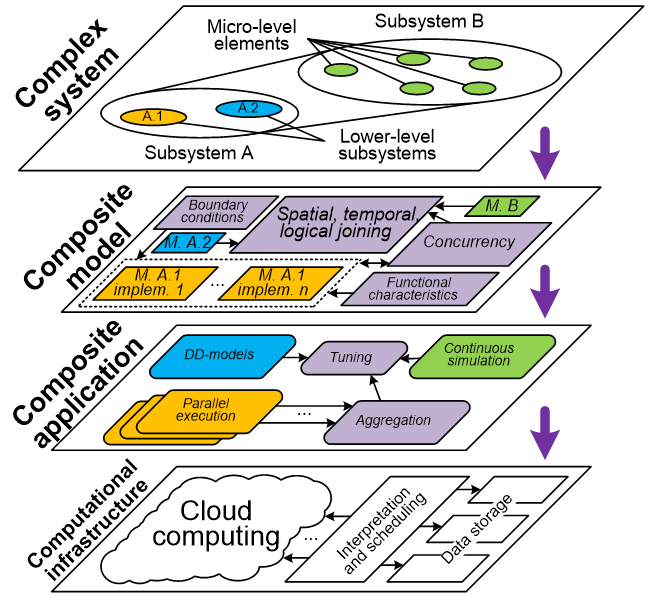Research interests
Personal cognitive modeling for decision making and decision support

While considering professional decision-making, an important yet unobservable part of the decision-making is human internal context and cognitive state. Being affected by personal experience, expertise, psychological characteristics, and personal values, it frames the personal strategies and preferences in professional decision-making. Within this direction, I’m trying to develop an approach for modelling of internal operator’s cognitive state during decision-making with or without decision support system, perceiving of available information, and result in intelligent behavior.
Notable papers
- O.V. Kubryak, S.V. Kovalchuk, N.G. Bagdasaryan Assessment of Cognitive Behavioral Characteristics in Intelligent Systems with Predictive Ability and Computing Power // Philosophies, 2023, Vol. 8, No. 5, pp. 75. 🔗link
- S. Kovalchuk, A.T.S. Ireddy Prediction of Users Perceptional State for Human-Centric Decision Support Systems in Complex Domains through Implicit Cognitive State Modeling // Proceedings of the Annual Meeting of the Cognitive Science Society, 2024, Vol. 46, pp. 3257-3264. 🔗link
Human-AI and human-machine interaction in complex decision making

Interaction between modern AI agents and human operators should be considered as bidirectional adaptive process aimed toward better collaboration. Here, each side of the process can reason about the opposite one in order to achieve personal and shared goals. To improve the process we can develop advanced techniques for communication (for example, by hiring explainable AI, XAI), propose novel approaches for cognitive reasoning and shared knowledge management in AI agent about human agent state, design adaptive multi-level feedback loops in information exchange.
Notable papers
- S.V. Kovalchuk [et al.] Three-stage intelligent support of clinical decision making for higher trust, validity, and explainability // Journal of Biomedical Informatics, Vol. 127, 2022, pp. 104013. 🔗link 🔗arXiv
- O.V. Kubryak, S.V. Kovalchuk An Artificial Sensory Component in a Man–Machine System with Combined Feedback // Control Sciences, No. 6, 2024, pp. 22-31. 🔗link
Modeling and simulation of professional and domain-specific behavior and decision making

In many cases, the agents are influenced by complex environments, personal motivation, social interaction, and regulatory mechanisms. Within a complex external context of decision-making, people act like professionals doing their jobs managing problems and processes with high uncertainty by application of expertise, knowledge, and tools (including computational tools). Large-scale systems (such as healthcare system) may be become complex, with emergent phenomena being observed through social interaction and knowledge sharing. Here, I’m trying to approach on how behavior of such complex systems can be understood, explained, and optimized taking into account.
Notable papers
- S.V. Kovalchuk [et al.] Simulation of Patient Flow in Multiple Healthcare Units using Process and Data Mining Techniques for Model Identification // Journal of Biomedical Informatics, Vol. 82, 2018, pp. 128-142. 🔗link 🔗arXiv
- S.V. Kovalchuk [et al.] Towards Modeling of Information Processing Within Business-Processes of Service-Providing Organizations // Lecture Notes in Computer Science, Vol. 12137, 2020, pp. 667–675. 🔗link
Meta-modeling and model management for complex system modeling and simulation

As the complexity of a system grows the model to describe it becomes more and more complicated. As a result hybrid modeling, surrogate modeling, data-driven modeling approaches are combined within cross-domain knowledge-based reasoning and artificial intelligence to design, implement, identify and apply composite models for domain-specific tasks. How can the general approach to such a problem be developed to extend intelligent support of complex system modeling and simulation?
Notable papers
- S.V. Kovalchuk [et al.] A Conceptual Approach to Complex Model Management with Generalized Modelling Patterns and Evolutionary Identification // Complexity, Volume 2018, Article ID 5870987, 15 p. 🔗link
- S.V. Kovalchuk [et al.] Classification issues within ensemble-based simulation: application to surge floods forecasting // Stochastic Environmental Research and Risk Assessment, Vol. 31, Issue 5, 2017, pp. 1183-1197. 🔗link
Notable projects
Research grants (as a primary investigator)
- “Intelligent technologies for chronic disease health service quality improvement in large-scale distributed telemedicine systems”, Ministry of Science and Education (international Russia-Malaysia collaboration project), 2021
- “Intelligent technologies for building, investigation, and application of digital entities based on composite models for complex systems”, Russian Scientific Foundation, 2019-2021
- “Personalized recommending technology for chronic disease patients using hybrid predictive modeling of life and health processes”, Ministry of Science and Education, 2017-2019
- “Big data management for computationally intensive applications”, Ministry of Science and Education, 2014-2016
- “Technologies for system-level design and development of interdisciplinary applications in cloud environment”, Ministry of Science and Education, 2009-2013
- “Instrumental environment for composite applications building for complex system modeling”, Federal Agency for Education, 2009-2011
Projects for industry (as a primary investigator)
- 1 project for GazpromNeft, 2021-2022
- 2 projects for GazpromNeft STC, 2019-2021
- 2 projects for PMT-Online, 2018-2020
Personal grants
- “Methods and technologies for complex model management using surrogate approach”, Grant by President of Russia, 2018-2019
- “Technology for brain-computer virtual reality systems using cloud computing environment”, Scholarship by President of Russia, 2018-2019
- “Methods for prediction and planning of high-performance modular software parallel execution”, Grant by Government of St. Petersburg, 2009
- “Methods for design of eScience software for high-performance computing using service-oriented architecture”, Grant by Government of St. Petersburg, 2008
- “Parallel software for statistical modeling of sea wave spectrum”, Grant by Government of St. Petersburg, 2007
Other notable projects (as a participant)
- CLAVIRE: cloud computing environment. A series of projects started by the project “Multi-profile instrumental platform for building and management of distributed cloud computing environment: CLAVIRE” (supported by Ministry of Science and Education, 2010-2012) and followed by a multitude of projects on the development, extension, and application of CLAVIRE. Personal role: development of intelligent and knowledge-based technologies for composite application design, building, and execution.
- “High-performance data assimilation technologies for complex system forecasting using hybrid dynamical models” (supported by Russian Scientific Foundation, 2014-2018). Personal role: development of intelligent methods and technologies for complex model building, identification, application with a focus on data assimilation.
- A series of projects for BCC Company during the development of a Water Level Forecasting and Flood Prevention Systems for Flood Prevention Facility Complex in Saint Petersburg (in operation since 2011 with no flood events during operation period). Personal role: design and development of ensemble water level forecasting solution; design and development of data assimilation solution; participation in the development of plan elaboration and decision support system.